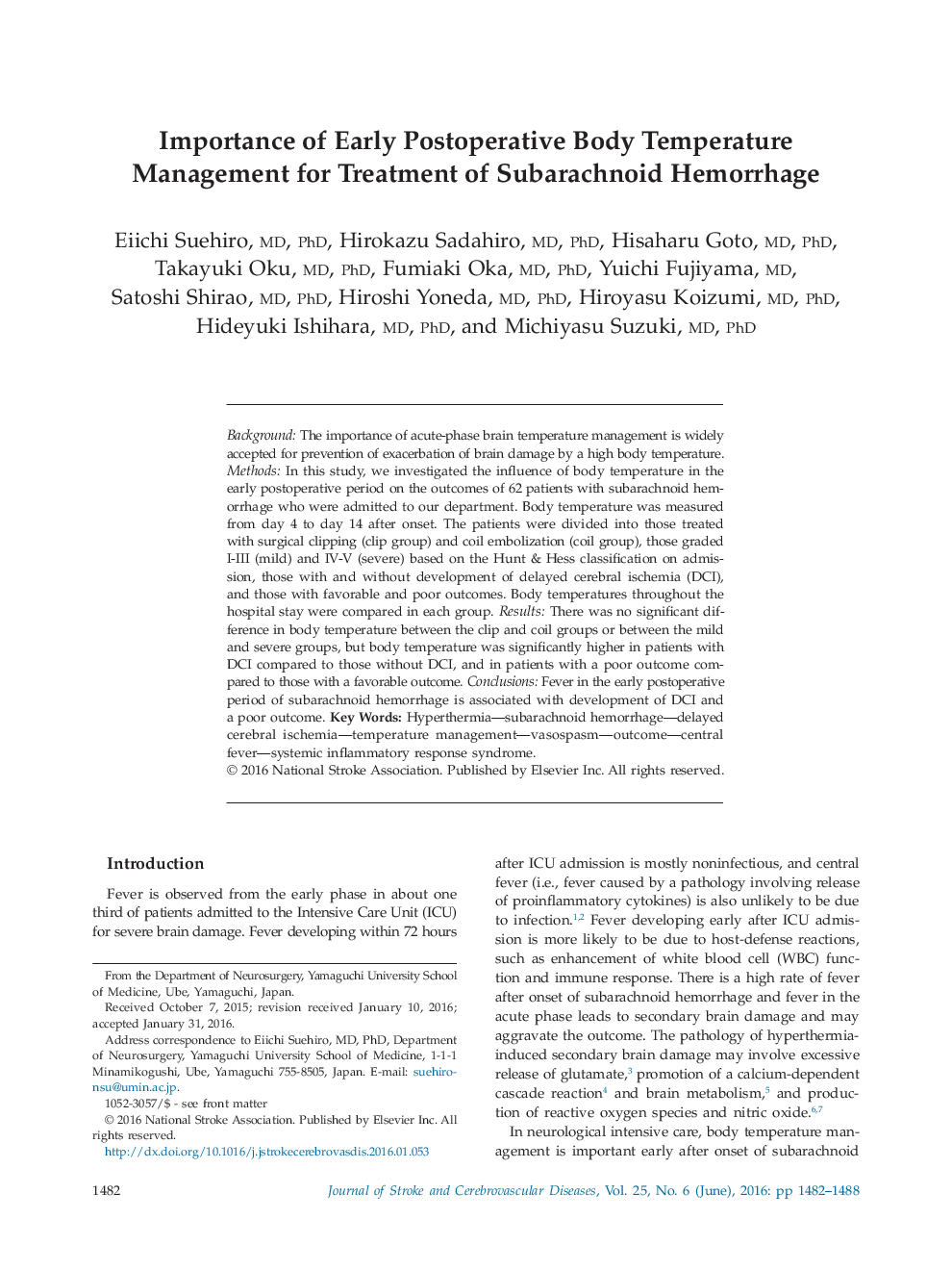| Article ID | Journal | Published Year | Pages | File Type |
|---|---|---|---|---|
| 5872914 | Journal of Stroke and Cerebrovascular Diseases | 2016 | 7 Pages |
BackgroundThe importance of acute-phase brain temperature management is widely accepted for prevention of exacerbation of brain damage by a high body temperature.MethodsIn this study, we investigated the influence of body temperature in the early postoperative period on the outcomes of 62 patients with subarachnoid hemorrhage who were admitted to our department. Body temperature was measured from day 4 to day 14 after onset. The patients were divided into those treated with surgical clipping (clip group) and coil embolization (coil group), those graded I-III (mild) and IV-V (severe) based on the Hunt & Hess classification on admission, those with and without development of delayed cerebral ischemia (DCI), and those with favorable and poor outcomes. Body temperatures throughout the hospital stay were compared in each group.ResultsThere was no significant difference in body temperature between the clip and coil groups or between the mild and severe groups, but body temperature was significantly higher in patients with DCI compared to those without DCI, and in patients with a poor outcome compared to those with a favorable outcome.ConclusionsFever in the early postoperative period of subarachnoid hemorrhage is associated with development of DCI and a poor outcome.
